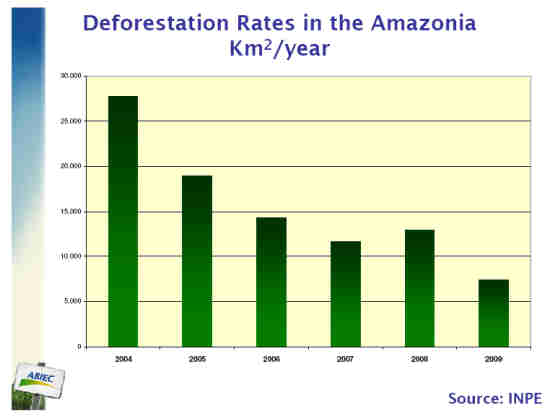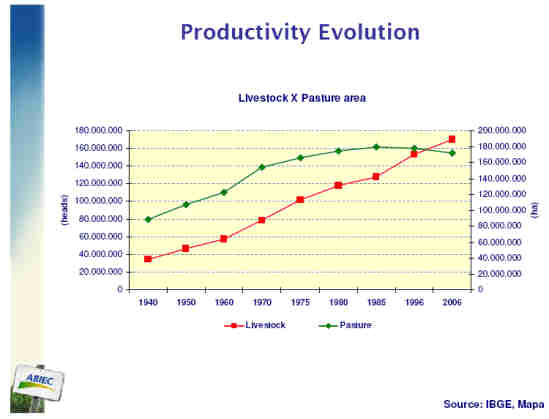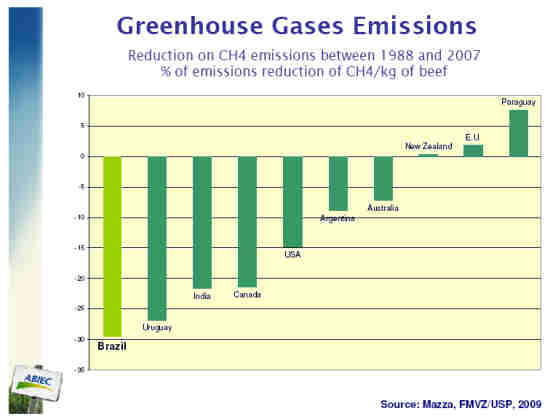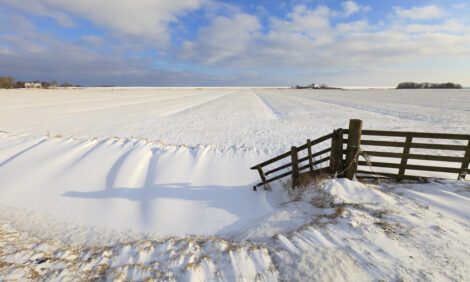



Brazil's Beef Sector Becoming More Sustainable
Brazil is more and more developing a sustainable livestock and agriculture production systems and moving away from the image of deforestation, writes TheCattleSite senior editor Chris Harris.Fernando Sampaio, the sustainability coordinator with ABIEC, the Brazilian beef industry's export organisation speaking both at the World Meat Congress in Argentina and during the SIAL food exhibition in Paris said that the Brazilian authorities has been turning its attention towards the challenges of land use and deforestation.
He said that since the middle of the last century the attention of the Brazilian agriculture sector had been to increase production, building up the cattle herd to its present 193 million head, largely of zebu cattle that are adaptable to the climate and environmental conditions in the country and growing the pasture lands for grazing and developing large agricultural land for growing crops.
He said the policy of the government had been to move people and cattle to the north of the country into under populated and underdeveloped regions.
Now, however, these policies have stopped, Mr Sampaio said.
While these policies have changed and the country is turning to more sustainable production, he said that the success of the beef industry was due to the natural conditions.
Brazil has good tropical grasslands and the zebu cattle are adapted to the conditions so that the sector has low production costs and the cost differences between the sector in Brazil and other beef producing countries over the years became lower and lower.
Now, production costs are starting to level out.
The Brazilian beef sector largely found a strong footing on the world markets when BSE struck in Europe and Brazil was able to replace European beef in the Middle Eastern and Russian markets.
The big question the sector is facing now, he said was that if Brazil is going to be able to supply the world which has a rapidly growing population, how will it be able to preserve its resources?
When it comes to a question of land use and the rain forests, Mr Sampaio said that Brazil has still preserved 85 per cent of the Amazon rain forest. He said that the authorities have placed this area which is equivalent to the size of Germany and Italy under conservation orders.
"The strategy of my government is to stop the development," he said.
"Areas have been set aside for conservation in the Indian lands."
In all 125.5 million hectares or 14.7 per cent of the land in Brazil has been set aside for Indian reserves, 72 million hectares or 8.5 per cent are conservation units, 172.3 million hectares are native and cultivated pasture land or 20.2 per cent of the total land mass of Brazil and 76.7 million hectares or nine per cent of the land is agricultural land.
In all 64.2 per cent of Brazil is managed as either conservation units, India lands or farms leaving 35.8 per cent for other uses.

"We are becoming more efficient and are using less land to produce more," said Mr Sampaio.
"Productivity has increased by 227 per cent between 1975 and 2007, but the amount of pasture land has only increased by four per cent.
"However, we still have a lot to do to improve production."
Mr Sampaio said the Brazilian beef industry was now using genetics and technology to increase production and the industry is finding more efficient ways to grow livestock.
He said that at present Brazil produces 49kg of beef per hectare but it will be able to produce more per hectare with better genetics.
"We will be able to produce more beef on a smaller pasture area and with fewer animals," he said.
"There is huge potential and there is room for improvement."

He said that Brazilian agriculture is growing in the savannah area and there is a growth of agricultural lands from the pasture lands.
"There is nothing coming from the forests and the Indian lands," he said.
"We are also reducing our methane emissions from our cattle by slaughtering them younger.
"Brazil has the largest reduction of methane production in the world from its cattle.
"We have more intensive production and a reduced methane production.
"Brazil is now also starting to use the waste beef fat to make biodiesel," he said.
"We are avoiding the use of fossil fuels for diesel."
Mr Sampaio added that further proof of Brazil's move towards greater sustainability and improved production practices was the recognition given by the European Commission for its traceability system for cattle.

November 2010


